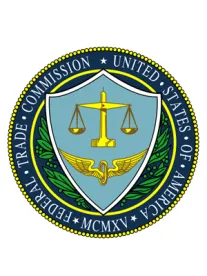Provides HSR 'reporting rules of thumb' for deal makers.
Premerger reporting is now required for companies working on transactions that will have an estimated value of $101 million or more at the anticipated time of closing. The Federal Trade Commission moved the reporting threshold up by $9 million from $92 million effective Feb. 23, 2022.
The Hart-Scott-Rodino Antitrust Improvements Act of 1976 (HSR) requires companies to provide the FTC and Department of Justice advance notice of transactions exceeding the specified value. The figure is adjusted annually to stay in line with the country’s gross national product.
According to the statute, the government has 30 days after receiving an HSR notice to determine whether a “second request” is necessary for additional information -- signaling the transaction is being investigated -- or to sue to block the deal. If a second request is made, the deal is put on hold to give enforcers time to evaluate the competitive implications before the merger may be consummated. The lack of a challenge does not mean a deal is “approved," however; the FTC and DOJ antitrust law enforcers may challenge a deal even after it has closed.
The FTC’s Premerger Notification Office (PNO), which fields questions about the threshold, offered these rules of thumb to determine whether your transaction triggers reporting obligations:
-
The correct threshold for determining reportability is the one in effect at the time of closing.
-
The filing fee is determined by the value of the transaction at the time of filing. The fees are $45,000 for deals up to $202 million; $125,000 up to $1.0098 billion; and $280,000 thereafter.
-
Notification thresholds for subsequent purchases are also adjusted annually. When HSR notification is filed, the acquirer has a year from the end of the waiting period to cross the threshold stated in its HSR filing. The acquirer must cross the threshold stated in the filing within one year after the end or termination of the waiting period, or they will have to file a new HSR notification in order to cross that threshold. Once the filed-for waiting period ends or terminates, the buyer can acquire up to the next threshold over the next five years without filing again.
Early analysis can help prevent or later defend a transaction against challenges down the road.
The value of a deal is one factor the government reviews because larger transactions are considered more likely to change the competitive landscape. Smaller deals also can negatively impact competition, so enforcers look at other factors, such as the size of the buyer and whether they are a frequent acquirer in concentrated markets. Just because a deal is not reportable does not mean enforcers can’t or won’t challenge it after closing.
Should you have questions about a potential deal, whether it meets the HSR threshold or not, it’s wise to get advice from attorneys specializing in competition law and market economics. Engaging counsel to perform an overall competitive analysis to help predict whether a deal, regardless of its size, might draw enforcement scrutiny is also a good practice. An example of this would be if you’re a party to a deal in a concentrated market or where a dominant player is acquiring a small or nascent company, including vertical acquisitions. Early analysis by qualified antitrust counsel can help prevent or later defend against challenges down the road.





 />i
/>i
